Vaccine
Latest

Microsoft: State-backed hackers targeted COVID-19 vaccine creators
Microsoft says state-backed Russian and North Korean hackers have targeted seven COVID-19 vaccine creators.
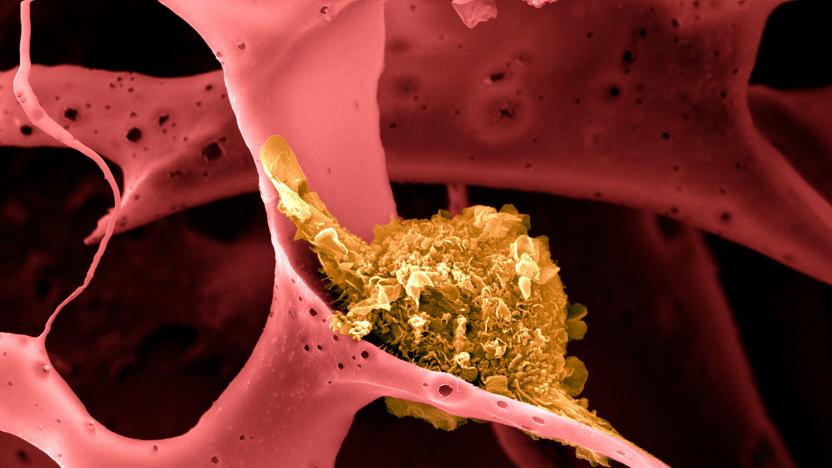
A new drug cocktail could help fight the toughest cancers
This could have far-reaching implications in the search for a cancer vaccine.

NSA says Russian hackers are trying to steal COVID-19 vaccine research
The US, UK and Canada claim Cozy Bear has targeted health care organizations.

Lasers and smart pills could eventually replace injections
While getting shots or blood work isn't anyone's idea of fun, roughly 10 to 20 percent of American adults suffer from trypanophobia, the extreme fear of hypodermic needles and injections. This phobia can prevent people from partaking in routine medical exams, receiving life-saving vaccines or even properly managing their blood-glucose levels (should they suffer from diabetes). However, a pair of novel injection systems offers the promise of putting those critical medicines into our bodies without ever breaking the skin.
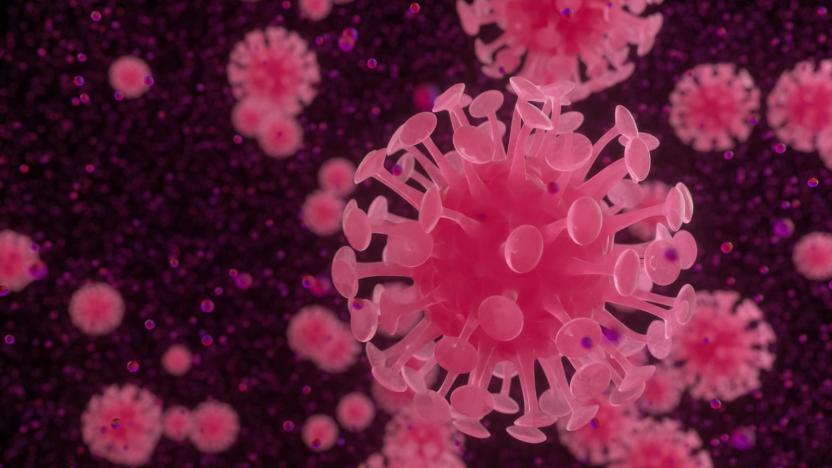
How AI is stopping the next great flu before it starts
Immune systems across the globe have been working overtime this winter as a devastating flu season has taken hold. More than 180,000 Americans have been hospitalized and 10,000 more have died in recent months, according to the CDC, while the coronavirus (now officially designated COVID-19) has spread across the globe at an alarming rate. Fears of a growing worldwide flu outbreak have even prompted the precautionary cancelling of MWC 2020 -- barely a week before it was slated to open in Barcelona. But in the near future, AI-augmented drug development could help produce vaccines and treatments fast enough to halt the spread of deadly viruses before they mutate into global pandemics.
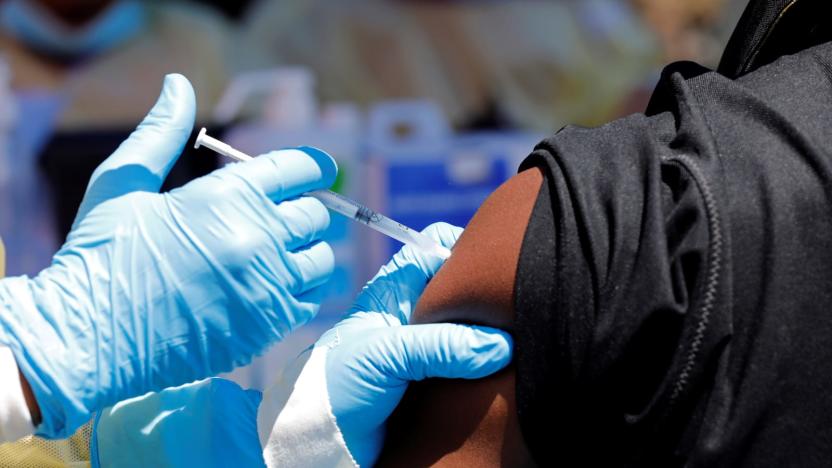
FDA issues its first approval for an Ebola vaccine
A month ago the European Union issued marketing authorization for a vaccine to prevent the Ebola virus in adults, and now the FDA has approved it. While noting that Ebola cases in the US have been very rare, director of the FDA's Center for Biologics Evaluation and Research Peter Marks said in a statement that "Vaccination is essential to help prevent outbreaks and to stop the Ebola virus from spreading when outbreaks do occur." Studies supporting its approval included one with 900 subjects in Canada, Spain and the U.S., where antibody responses matched with those seen elsewhere. Side effects included "pain, swelling and redness at the injection site, as well as headache, fever, joint and muscle aches and fatigue." An ongoing outbreak of Ebola in the Congo has killed more than 2,000 people, and more than 200,000 people have received the vaccine. A study during an outbreak in Guinea " determined to be 100% effective in preventing Ebola cases with symptom onset greater than 10 days after vaccination." The EU marketing approval precedes increased manufacturing of the dose, called V920, in Germany later in 2020.
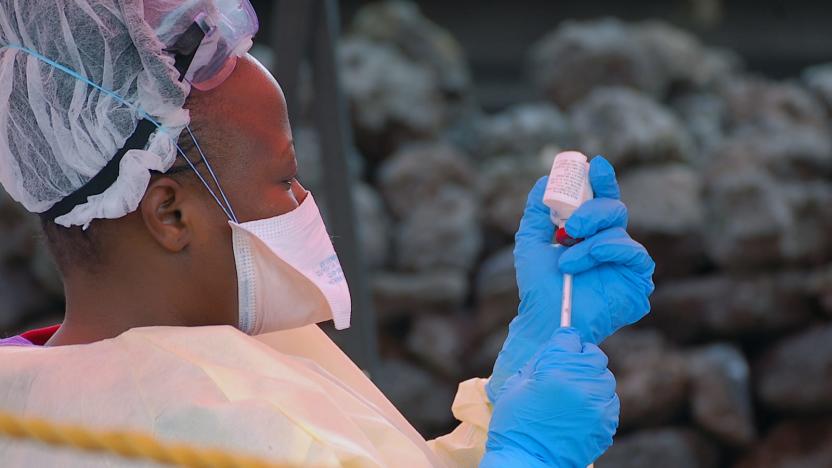
The EU just approved a vaccine to prevent Ebola
Today, the European Union granted an Ebola vaccine "conditional marketing authorization." The vaccine, developed by the pharmaceutical giant Merck, is known as Ervebo. It's the first human Ebola vaccine to be approved by the EU.

Facebook debuts new notifications to fight vaccine misinformation
Following on the heels of Pinterest, Facebook is launching a new initiative aimed at combating anti-vaccine misinformation. Moving forward, whenever Facebook users search for vaccine-related content, including through groups and hashtags, the social network will display a card that prompts those individuals to instead obtain information from a credible source. In the US, the notification will direct people to the website for the Centers for Disease Control and Prevention (CDC). In other parts of the world, those same notifications will send people to the World Health Organization (WHO). Instagram will do the same on its platform.

Twitter will direct vaccine-related searches to 'a credible' source
Nearly every social media platform has introduced tools to stop the spread of misinformation around vaccines. The latest change comes from Twitter. Now, when users search for vaccine-related content, they'll first see a link to vaccines.gov, which is run by the US Department of Health and Human Services. Twitter announced the change in a blog post late last week.

Instagram will block hashtags spreading fake news about vaccines
Just one day after coming under fire for inconsistent practices in its handling of misinformation about vaccines, Instagram told Engadget that it will block hashtags that surface "verifiably false" information regarding vaccinations. The new policy will extend Instagram's ban policy to hashtags that may seem unrelated or innocuous but are used to spread debunked claims.
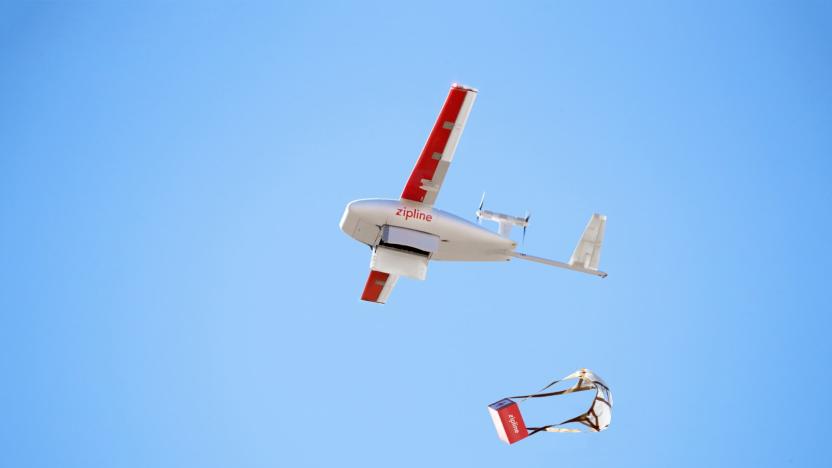
Zipline expands medical drone deliveries to Ghana
While the jury on consumer drones is still out, unmanned aerial vehicles (UAVs) are fast becoming an important tool in global delivery networks. Take Zipline as a prime example: since 2016, the Californian company has used unmanned aircraft to deliver critical medicines and blood to hospitals over huge distances in Rwanda. According to the Financial Times, the Silicon Valley startup is drastically expanding its presence in Africa, mobilzing what will become the world's largest drone delivery network to transport "150 different medicines," vaccines and blood to 2,000 clinics in remote parts of Ghana.

Pinterest blocks some searches to curb anti-vaccination myths
Social networks have made a number of efforts to halt the spread of anti-vaccination myths, but Pinterest recently took things a step further: it's curbing all talk about vaccination. The site has revealed to the Wall Street Journal that it blocked vaccination-related search terms late in 2018 to limit misinformation until it had a more effective way of filtering content. The company tried to pull the misleading material, but found that it couldn't remove all of it.

Russian trolls played 'both sides' on vaccine arguments
Russian trolls have been leaping into existing hot-button debates between US internet users and riling up both sides for years, and social platforms are still banning fake accounts and groups. Those haven't been limited to politically-relevant divides, either. A new study has revealed that Russia-backed online agents saw some Americans defend the life-saving, well-researched practice of administering vaccines arguing with medical doubters, and riled up everyone to cause chaos.
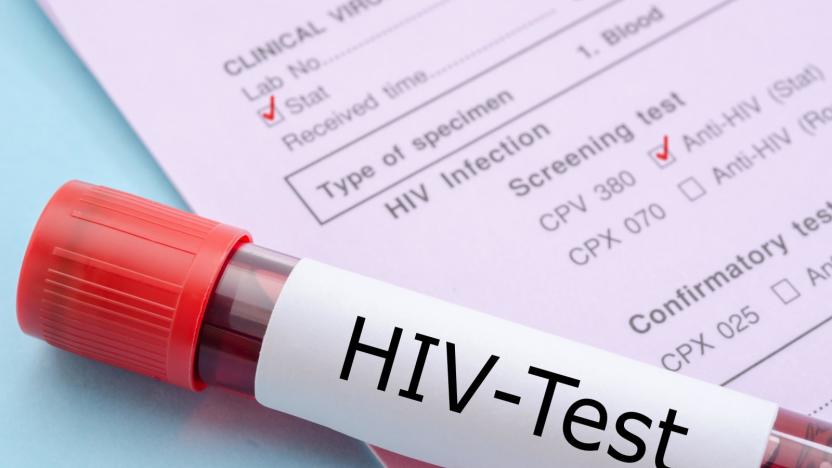
HIV vaccine delivers promising results in human tests
A Harvard-led team of scientists has made important progress in the quest to prevent HIV infections. They've had early success testing a multi-strain vaccine in humans -- everyone who received the drug produced at least some kind of anti-HIV immune response, with at least 80 percent producing more advanced responses. The researchers also found that the same vaccine protected 67 percent of rhesus monkeys against simian-human immunodeficiency virus, which suggests it might be effective against HIV.

MIT combines several vaccines in a single injection
Someday, kids might only have to endure a single jab to get the benefits of several vaccines, thanks to a new technology by a team of MIT engineers. They've created a method that allows a single injection to carry enough doses for the first one to two years of a child's life, with each dose released at a specified time. Their secret? Microscopic coffee cups made out of PLGA, a biocompatible polymer used in prosthetics and implants.

Scientists revive an extinct virus using off-the-shelf DNA
It's no longer far-fetched to synthesize a basic organism. However, a team of researchers has taken that work one step further. They recently reconstituted and reanimated an extinct virus, horsepox, using DNA they'd ordered via mail. The team stitched together multiple gene fragments (each with about 30,000 base pairs) into the complete 212,000-pair horsepox genome and inserted it into cells already infected with a different pox, bringing the inanimate virus to life. It's clever work, especially given the relative complexity of a pox virus compared to earlier efforts, but it's also a double-edged sword -- it could at once provide a breakthrough in medical research and pose a potential threat.
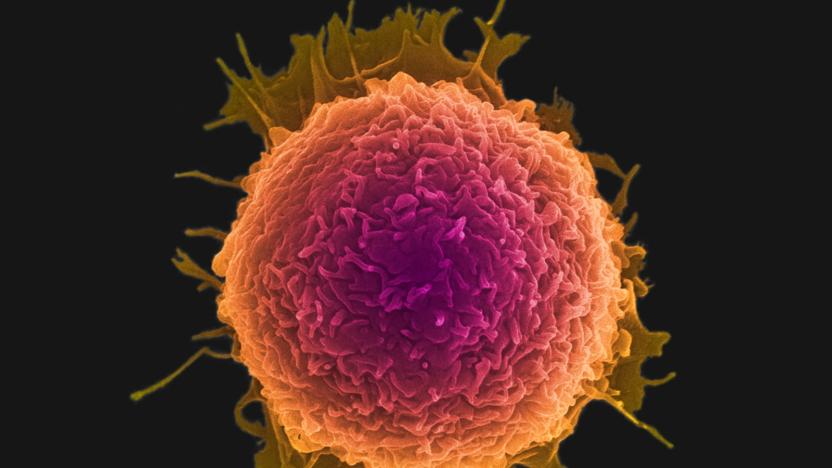
Nano-sized discs teach your body to fight cancer
In the future, getting customized cancer treatments might just be a matter of injecting virtually invisible discs into into your body. University of Michigan scientists have had early success testing 10nm "nanodiscs" that teach your body to kill cancer cells. Each disc is full of neoantigens, or tumor-specific mutations, that tell your immune system's T-cells to recognize those neoantigens and kill them. When you pair them up with immune checkpoint inhibitors (which boost the T-cells' responses), they can not only wipe out existing tumors, but prevent them from reemerging later.

Ebola vaccine proves 100 percent effective in Guinea trial
An Ebola vaccine has proven to be 100 percent effective during test trials in Guinea. The shot has yet to be approved by a regulator, but Gavi, the Vaccine Alliance, has already committed $5 million so a stockpile of 300,000 doses can be produced. The results of the trial, which covered 11,841 citizens, were published in The Lancet medical journal this week. Of the 5,837 people who received the vaccine, none came down with Ebola after 10 days. (Those who showed symptoms before this time were not counted, as it was assumed they had been infected before vaccination.)

Volunteers needed to get infected with Zika for science
While the Zika virus spreads into the US and the CDC has advised pregnant women to avoid the area of another recent outbreak in Miami Beach, Florida, scientists continue to race toward prevention options. US researchers are now seeking volunteers to get infected with the Zika virus in order to test promising experimental vaccines that could be candidates for mass deployment.
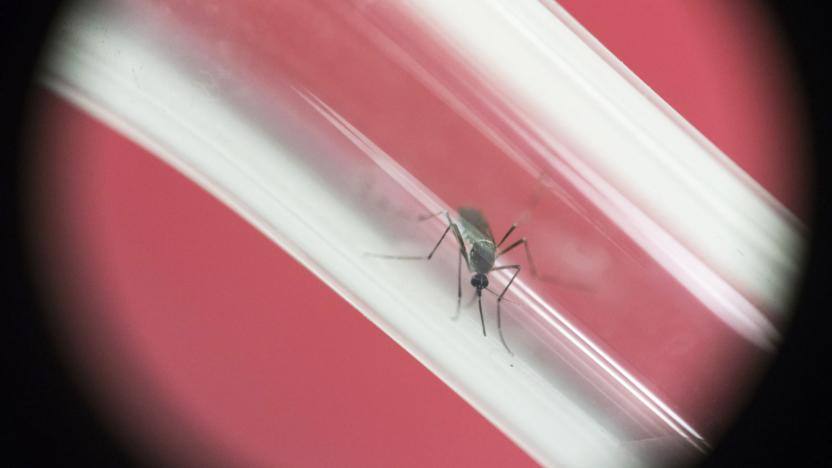
Further Zika studies increase the chances of a vaccine
The hopes for a Zika vaccine are seemingly getting stronger by the day. To start, Harvard researchers have successfully tested two vaccine candidates in mice -- reportedly the first instance of such a treatment working in an animal. One of them relies on an inert version of the virus, while the other entails customized DNA sequences. The scientists will need to test their work on larger animals before it's declared safe, but it's promising to see two more potential safeguards on top of one discovered just days earlier.











